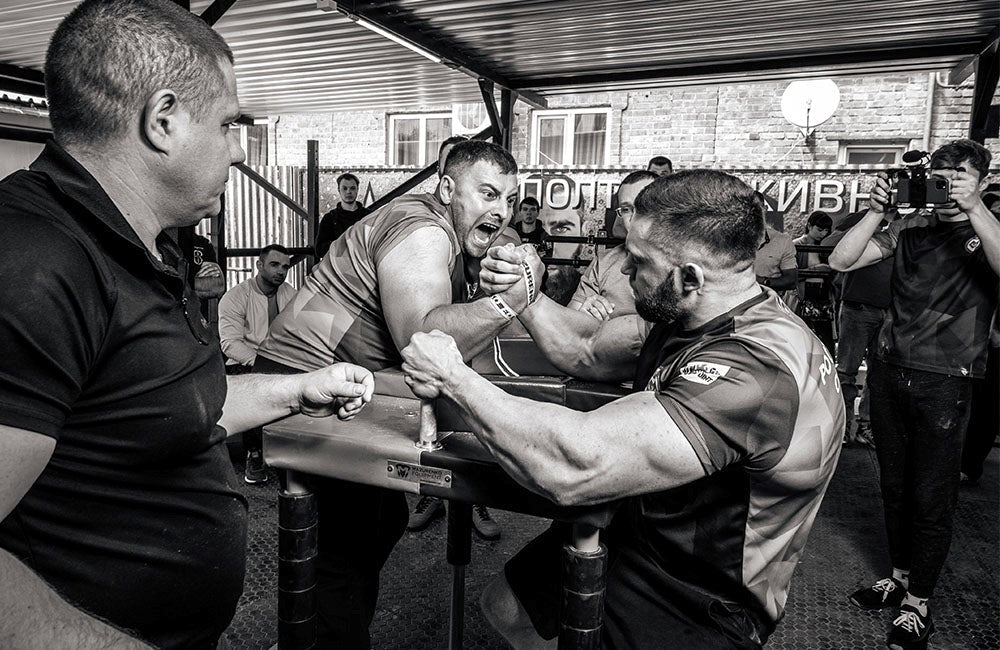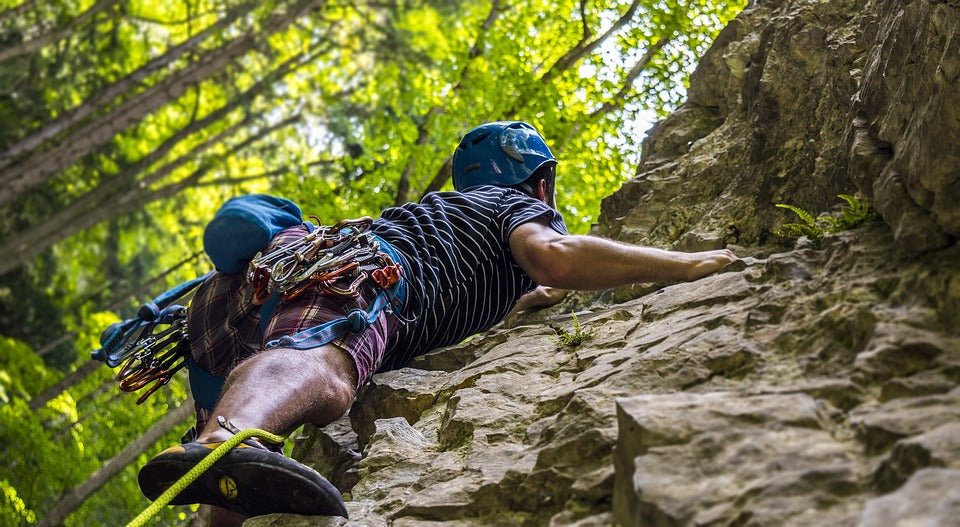Do you believe that rock climbing is solely about fun and excitement? Are there no advantages and benefits whatsoever?
This article will educate you on the health, mental, social, physical, and spiritual benefits of rock climbing that can wow you in every possible way.
To encourage you to begin rock climbing as soon as possible in order to enjoy these advantages, we will now discuss the top 6 of them:
1. Rock Climbing Increases Strength & Grip

Your legs, forearms, and core body muscles are involved in rock climbing, which means you will experience a significant improvement in your grip strength courtesy of climbing.
Every time you open and close your hand during rock climbing, your forearm flexors will be used.
The abs are responsible for core stability and maintaining proper pelvic positioning relative to the upper body.
Stepping from one foothold to another is made possible by using the quadriceps (a set of muscles positioned at the front of the thigh).
So, if you want to increase your strength and grip, you better start climbing a rock sooner than later.
Related: Benefits of grip strength
2. Rock Climbing Improves Balance

One of the many benefits of rock climbing is that it improves body balance, and we all know how crucial balance can be to perform well at rock climbing.
No matter how dedicated you are, you won't be able to move your center of gravity into the ideal position if your balance is off.
We typically advise readers to work on strength and balance because they are necessary to try out the most difficult rock-climbing positions.
Who knows, once your balance is better, you might get so skilled at it that climbing on one leg will be no problem for you in the future.
3. Rock Climbing Helps With Problem Solving

Do you wish to enhance your problem-solving abilities? If so, it is preferable to begin climbing to get the job done.
You may be surprised to know about it, but rock climbing can take your problem-solving skills to a whole new level, and that’s an amazing mental benefit of rock climbing.
As a mountaineer, you no doubt know the significance of the "fight or flight" reaction. When you're in this position, you have to decide how to keep your body from collapsing under its weight because nothing is helping.
When rock climbing, you'll inevitably run into difficult circumstances, and it'll be up to you to figure out a way.
You will learn by trial and error, but you will eventually be able to solve any problem with just your head.
All these situations will prepare you to solve real-life problems.
4. Rock Climbing Overcomes Fear

We are aware of how difficult it can be to face your concerns, but this is where rock climbing can help.
You will always be afraid of falling as a climber, but the more you climb, the faster you will be able to overcome this fear.
The ability to decide whether it is appropriate to descend or ascend when faced with a climbing challenge is what is required to overcome a climbing phobia.
Once you've conquered your fear of climbing, everything will become simple for you in real life, and you'll feel so confident that you'll be able to take big risks.
5. Rock Climbing Allows You To Explore

Rock climbing is a fantastic way to challenge oneself while also providing a number of psychological benefits, such as an increase in endorphins, an increase in adrenaline, and a sense of invincibility.
You can tick off the local bouldering gyms and climbing walls from your bucket list if you're an indoor climber.
And if you want to give your rock-climbing pastime a real adventure, the mountains and rocks are yours to explore.
During this exploration, you will feel real life, and you will get to know how to survive when you have very few resources to play with.
6. Rock Climbing Increases Self-Confidence

Last but not least, another social benefit of rock climbing is that it increases your confidence.
Rock climbing will help you feel accomplished when you get proficient at it, and accomplishment feelings are what give people confidence.
Naturally, you'll have to go through a lot of climbing obstacles at first, but ultimately, you'll grow proficient at it and be certain that you can cross the line.
A self-assured person can accomplish great things because he won't be afraid to take the necessary risks. Who knows? Maybe your immense self-assurance will lead to your eventual success as a professional rock climber.
Concluding Remarks
We've listed the top 6 benefits of rock climbing—health, emotional, social, physical, and spiritual—that practically any climber can experience.
In today's society, where video games have mostly replaced physical ones, selecting rock climbing can be a clever way to approach life and add adventure to it.
What are some other benefits of rock climbing that you are aware of?
FAQs
What are the health benefits of climbing?
Your total endurance and stamina can be increased by regularly climbing. Additionally, it works a variety of muscles in the upper and lower body, such as the back and abdominals.
Can rock climbing give you abs?
If you control your food and keep to a regular schedule, bouldering and climbing can help you develop six-pack abs. Additionally, it will make your body athletically balanced (lean) and ripped and strong.
Does climbing improve balance?
One of the physical benefits of rock climbing is improved balance. Intense activities strengthen the abdominal, arm, leg, and back muscles. As a result, climbing improves balance for various sports, activities, and daily life.



